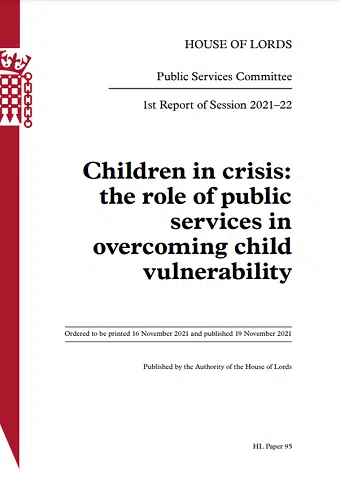iHV responds to the House of Lords’ Public Services Select Committee report published today into how public services support children and families – Children in crisis: the role of public services in overcoming child vulnerability.
Baroness Armstrong of Hill, Chair of the Select Committee, reports:
“We found a crisis in child vulnerability. Over a million children are now growing up with reduced life chances, too many ending up in care, too many with poor health outcomes… The crisis has grown worse during the pandemic, but it’s been building for many years, partly due to large cuts in early intervention funding.”
This important report is a stark reminder that underinvestment has created worse outcomes for children and higher costs for the taxpayer, as children slip through the gaps between services and do not get the support they need. The report includes clear recommendations for a national strategy for child vulnerability, and also recommends that ‘health visiting’ should be key partners in delivering Family Hub provision.
Responding to the report, Alison Morton, iHV Executive Director, said:
“Today’s hard hitting ‘Children in Crisis’ report lays bare the preventable suffering and misery that has been caused to our nation’s children whose needs have been largely overlooked.
“Cuts have consequences and the poorest children have been hit the hardest. It is time for the Government to prioritise children in their plans to ‘Build Back Better’, particularly babies and young children who have been overlooked the most.
“We call on the Government to make good their pledge to ‘rebuild health visiting’. Health visitors provide a vital infrastructure of support for all families, and a crucial safety-net, identifying vulnerable babies and young children.
“The Government say that they will maintain the Public Health Grant, but this is being maintained at a level that is too low to fund the number of health visitors needed to support all families and identify vulnerable babies and young children. Following years of cuts since 2015, there is now a national shortage of 5,000 health visitors in England and the profession faces its biggest workforce challenge in living memory. As a result, despite health visitors’ best efforts, the service is now so stretched that many families are not getting the support they need, and vulnerable babies and young children are being let down.
“Investment in health visiting is needed to provide the prevention and early intervention support to stop this growing tsunami of children in crisis. This cannot wait any longer – our nation’s children deserve better.”



